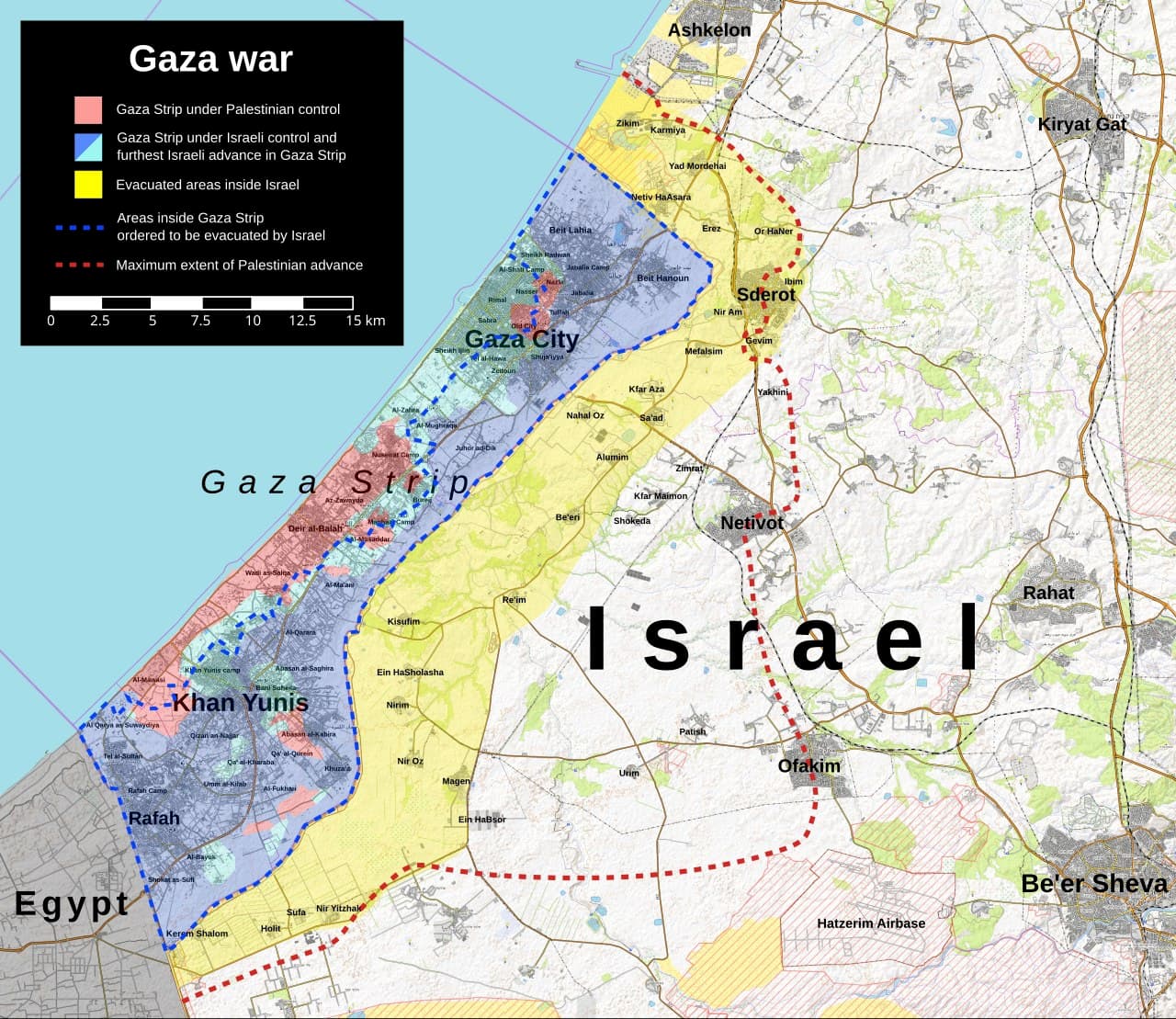Israel to Relocate Gaza Residents as Offensive on Gaza City Imminent Sunday
In a significant escalation of its military operations, Israel has announced plans to begin relocating residents from combat zones in Gaza to the southern region starting Sunday. This move precedes an anticipated offensive aimed at seizing control of Gaza City, a densely populated area that has become the epicenter of ongoing conflict. The decision underscores the urgency of the situation as tensions continue to mount in the region.
Background & Context
The Israeli-Palestinian conflict has been marked by cycles of violence and attempts at peace negotiations for decades. The recent escalation follows a series of violent exchanges between Israeli forces and militant groups in Gaza, particularly Hamas. The Israeli government has cited security concerns and the need to protect its citizens as justifications for its military actions. The decision to relocate residents reflects the dire humanitarian situation in Gaza, where civilian casualties have been mounting amid ongoing airstrikes and ground operations.
Historically, similar military strategies have been employed in various conflicts, raising questions about the implications for civilian populations. The relocation of residents in wartime situations often leads to increased humanitarian crises, as displaced individuals face challenges such as lack of shelter, food, and medical care. This context highlights the complexity of the current situation in Gaza as Israel prepares for a significant military operation.
Key Developments
Israeli officials have stated that the relocation operation will begin on Sunday, with plans to transport residents from the northern parts of Gaza to the southern regions. Authorities have urged civilians to evacuate areas expected to be heavily targeted in the upcoming offensive. The Israeli Defense Forces (IDF) have indicated that the offensive aims to dismantle militant infrastructure and reduce the threat posed by Hamas and other groups operating in the region.
In a press briefing, an IDF spokesperson emphasized the necessity of the operation, stating, “Our primary goal is to ensure the safety of our citizens while targeting those who threaten our security.” However, this approach has drawn criticism from various human rights organizations, which have warned that forced relocations could exacerbate the humanitarian crisis and lead to further civilian suffering. As previously reported, the situation has already reached critical levels, with thousands of residents displaced and in need of urgent assistance.
Broader Impact
The planned offensive and subsequent relocations are expected to have far-reaching consequences, not only for the people of Gaza but also for regional stability. Experts suggest that increased military action could provoke further retaliatory strikes from militant groups, potentially escalating the conflict into a broader regional confrontation. Additionally, the humanitarian implications are severe, as the international community watches closely and calls for restraint from both sides.
Moreover, the situation in Gaza is emblematic of larger geopolitical dynamics in the Middle East. As nations grapple with their own security concerns and alliances, the conflict in Gaza continues to serve as a flashpoint. Recent developments in other regions, such as China"s unveiling of extra-large underwater drones, indicate shifting power dynamics that may influence how global powers respond to the Israeli-Palestinian conflict.
What"s Next
As the relocation operation begins, the focus will shift to how effectively Israel can manage the humanitarian fallout from its military actions. Aid organizations are preparing for increased demand for humanitarian assistance as more residents are displaced. The international community is likely to ramp up calls for ceasefire negotiations, emphasizing the need for dialogue to address the underlying issues of the conflict.
In the coming days, observers will be monitoring the situation closely to gauge the impact of the Israeli offensive on both military and civilian fronts. The outcomes of this operation may set the tone for future engagements in the region and influence international diplomatic efforts aimed at achieving long-term peace. As tensions remain high, the world watches to see how this latest chapter in the ongoing conflict will unfold.


![[Video] Heavy clashes and gunfire reported in Baghdad, Iraq](/_next/image?url=%2Fapi%2Fimage%2Fthumbnails%2Fthumbnail-1768342239932-848qsh-thumbnail.jpg&w=3840&q=75)




![[Video] Gunfire between Iraqi security forces and Sadr militias in Baghdad](/_next/image?url=%2Fapi%2Fimage%2Fthumbnails%2Fthumbnail-1768343508874-4redb-thumbnail.jpg&w=3840&q=75)
